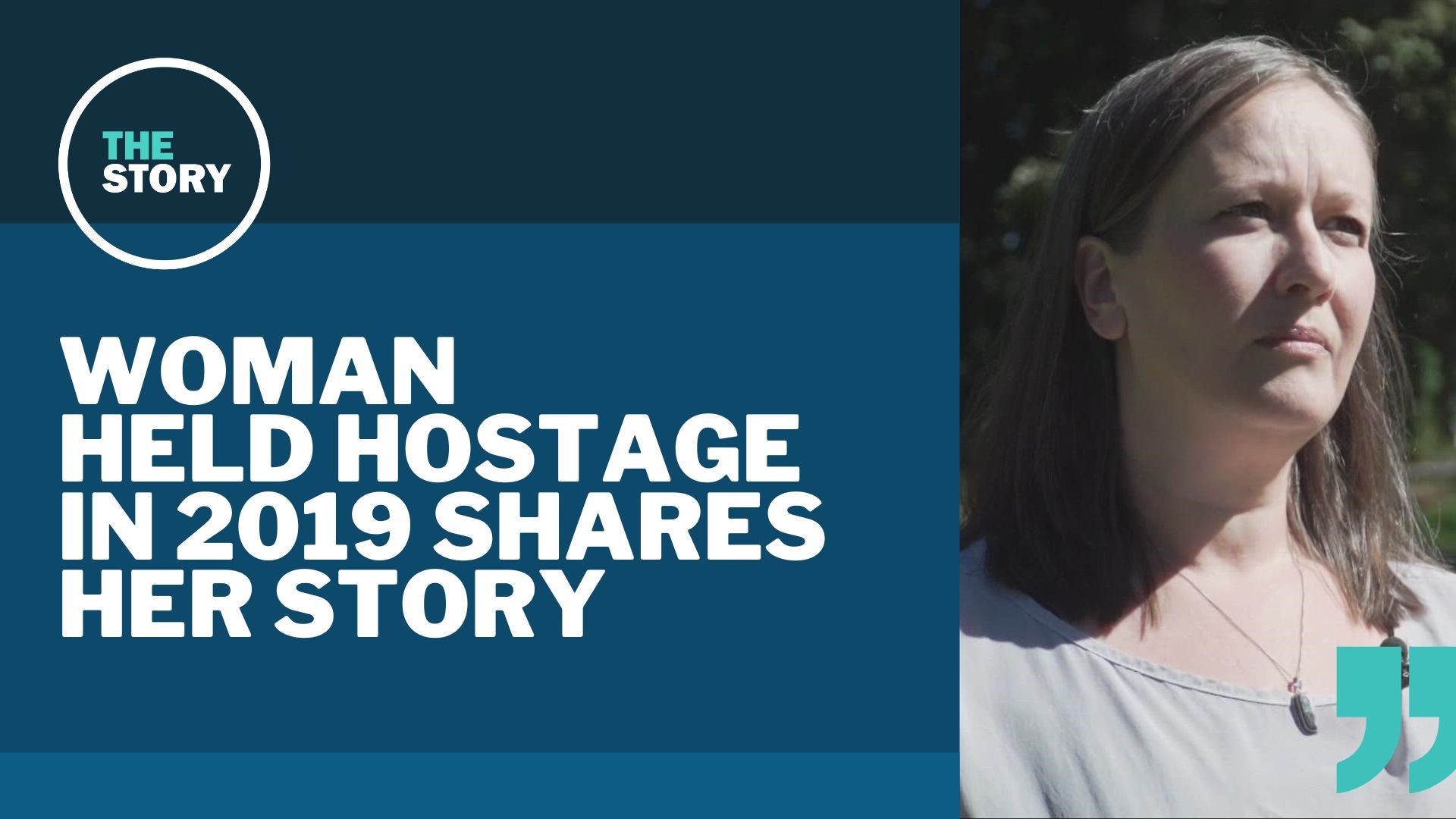PORTLAND, Ore. — Three years ago, Melissa West was held at knifepoint in front of her daughter in downtown Portland. A man having a mental health crisis refused to let her go as police officers drew their weapons.
She said it was the worst day of her life.
After watching "Uncommitted," a KGW documentary series that covers the gaps in Oregon's involuntary commitment process, West wanted to share her story publicly with the hope of inspiring changes to the system.
The day was Aug. 25, 2019. West had just taken her 13-year-old daughter to see a Portland Thorns game at Providence Park.
"Beautiful day. They won, so we left there excited," West said.
After the game, the two of them walked over to the McDonald's at Northwest 19th and Burnside, across the street from the stadium, to wait for their ride. They were sitting on the curb when West noticed some kind of police situation nearby.
Not long before, a man later identified as Christopher Hall had forced his way into a church down the street where a dozen kids were having choir auditions. When the police arrived, he ran toward the McDonald's.
"At that moment, as soon as I recognized that looked strange, cops just swarmed the parking lot. He looked at us and I looked at him, and he ran towards us and I said run. We got to the top of the handicap ramp and (my daughter) looked back at me, expecting me to be right behind her. And I wasn’t. He grabbed me and I told her keep running," West said.
West said the man spun her around and used her as a shield.
"Everything slowed down, you know. I remember just trying to lean over 'cause all the guns were pointed at his head that was to my right," West said. "So I kept trying to lean over, 'cause they said they were gonna shoot. And I could see the knife and I knew I wasn’t strong enough to overpower him. So I made the decision not to and to plead with him, telling him about my daughter. 'You’re scaring her, please don’t do this.'"
She said she went limp and slumped to the ground in her attempt to escape. He went down with her, refusing to let her go.
"The only thing he said was, 'They’re gonna shoot me.' And then I said, 'Well yeah! You’re holding —' and then it kind of made sense that he wasn’t understanding. A normal person would respond, I think, to those emotional pleas, but he didn’t," West said.
She said she raised her voice and told Hall that if he dropped the knife, the police weren't going to shoot him.
"Moments later, he just let go of it and then got up to run. And I pushed the knife off the handicap ramp and everybody ran away to get him," she said.
Police arrested Hall on various charges including kidnapping and burglary, and he was found guilty except for insanity on all counts. He was committed to Oregon State Hospital and placed under the jurisdiction of the Oregon Psychiatric Security Review Board for a maximum sentence of 20 years.
Although the crisis ended quickly, its impact on Melissa West has been long-lasting.
"It's been life-changing for me and my family. My mental health is changed forever now."
She said she suffers from post-traumatic stress disorder and meets with a therapist to try to move on with her life.
"It's hard to be struggling and see nothing getting any better."
West said she was inspired to reach out after watching KGW's coverage on civil commitment, as she watches the mental health crisis worsen in the city of Portland.
RELATED: Uncommitted: How high standards are fueling a cycle that can fail people with serious mental illness
"We tout ourselves for all trying to help these people, but are they receiving the help they need? 'Cause some of them aren't seeking help."
KGW's "Uncommitted" series features a Portland woman named Brenda Gardner who for years tried to help her son Eric with his mental health issues. He's now living homeless in Seattle.
"The problem is the laws were changed so their civil rights is what is important- their safety is not," Gardner said.
Her comment struck a chord with West.
"I feel that to my core. What about all of our safety? What about my family's rights too? You know, I felt that was the worst day of my life. I’ve been violated, you know, and with my child. My daughter witnessed it all. I'm not OK with that, and things aren't getting better. So maybe telling my story will shed light."

